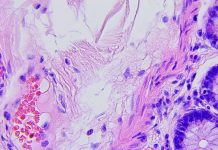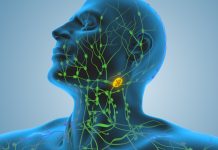For fifty years, Western nations have faced a rising wave of lethal esophageal and stomach cancer. AI’s predictive capability in these cancers is now evident
The prevalence of esophageal adenocarcinoma (EAC) and gastric cardia adenocarcinoma (GCA) has become alarmingly high.
Joel Rubenstein, M.D., M.S., a researcher at the Lieutenant Colonel Charles S. Kettles Veterans Affairs Center for Clinical Management Research and a professor at Michigan Medicine, emphasises the role of proactive measures.
Early screening can identify precursor conditions like Barrett’s Esophagus in individuals with long-term gastroesophageal reflux disease (GERD), enabling timely intervention.
How AI can predict esophageal and stomach cancer
Despite existing guidelines for screening high-risk patients, Rubenstein points out the lack of familiarity among healthcare providers.
Numerous cases of these cancers occur in individuals who were never screened. An automated tool, such as AI, integrated into electronic health records (EHR) holds the potential to bridge this awareness gap.
Rubenstein and his research team harnessed artificial intelligence to analyse data from over 10 million U.S. veterans, resulting in a groundbreaking study published in Gastroenterology.
They introduced the Kettles Esophageal and Cardia Adenocarcinoma prediction tool, or K-ECAN, which outperforms prior methods in predicting these cancers.
K-ECAN: A game changer
K-ECAN exploits readily available EHR data—patient demographics, weight, prior diagnoses, and routine lab results—to assess an individual’s risk of developing EAC and GCA.
This automated tool supersedes its predecessor M-BERET, eliminating the need for complex measurements and allowing timely risk assessment.
K-ECAN presents patient risk information to providers at strategic junctures to simplify its implementation. This promotes informed decisions during colorectal screening or prescription medication renewal activities.
Artificial intelligence unleashed
Rubenstein emphasises K-ECAN’s superiority in predicting cancer at least three years before diagnosis. Despite GERD symptoms being a significant risk factor for EAC, many patients with this form of cancer do not manifest prior GERD symptoms. K-ECAN’s efficacy lies in identifying elevated risks regardless of symptoms.
Akbar Waljee, M.D., M.Sc., a senior author, lauds the collaboration that made this study feasible, highlighting the amalgamation of data and machine learning in cancer prevention.
EHR integration: A path to preventing cancers
Incorporating K-ECAN into EHRs could trigger automated alerts for providers, spotlighting at-risk patients. This approach could significantly alleviate the burden of Esophageal and stomach cancer.
Rubenstein’s team’s dedication and advanced machine learning culminated in K-ECAN. Its potential impact includes enhanced screening and reduced preventable deaths, heralding a brighter future in cancer prevention beyond the VA.











